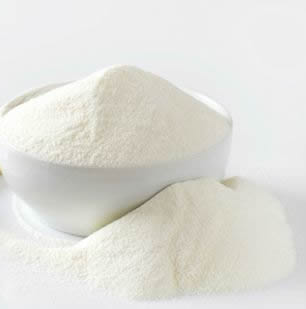China loses Asia market crown to Japan as traders flee Chinese stocks
China¡¯s stock exchanges cede Asia crown to Japan as investors flee Chinese equities amid trade war
Stocks are weighed down by trade war and domestic drive to reduce debt; the benchmark Shanghai index has sank 4.6pc this week.
China has just ceded its four-year title as the world¡¯s second-largest stock market to Japan, as Chinese equities continue to lose ground on Friday amid the country¡¯s intensifying trade spat with the US and its campaign to reduce leverage weighed on equities.
The mainland Chinese markets were capitalised at US$6.09 trillion, losing out to Japan¡¯s US$6.17 trillion, according to Bloomberg data. China¡¯s benchmark Shanghai Composite Index has slipped into the bear market territory this year and is heading for an annual loss of 17 per cent, as traders dumped stocks after the Trump administration started to levy tariffs on Chinese imports and financial deleveraging restrained liquidity.
The Shanghai Composite Index fell 1 per cent, or 27.58 points, to close at 2,740.44 on Friday. The index has sank 4.6 per cent this week, the biggest weekly loss since February 9.
The decline of Chinese equities had resumed this week after the White House threatened to more than double the tariffs on proposed US$200 billion worth of imports from the Asian nation. The new round of sell-off came even after Chinese policymakers have begun fine-tuning policies to counter a possible slowdown, boosting expenditure on infrastructure investments, adopting a more proactive fiscal policy and softening the crackdown on shadow banking.
China¡¯s markets have lost US$1.6 trillion in market value this year, equivalent to the size of Canada¡¯s economy.
¡°China¡¯s stock markets have made people lost so much money over the past few years, and investors have lost their faith because of the rampant frauds and scandals,¡± said Kingston Lin King-ham, a director at securities brokerage AMTD.
Chinese pharmaceutical stocks took a hit last week in the latest safety scandal over the nation¡¯s vaccines, which involved several publicly listed companies.
While the Shanghai Composite is the world¡¯s worst-performing major benchmark this year, Japan¡¯s Nikkei 225 index only shed 1.1 per cent so far as the Japanese government bought exchange-traded funds to prop up the market and companies reported earnings that exceeded analysts¡¯ estimates.
China first overtook Japan as the world¡¯s No 2 market in 2014 before the Chinese market capitalisation surged to a record high of US$10.1 trillion in the following year. The momentum did not last long as a subsequent rout wiped out almost half of the market value, with the regulator deflating the bubble by getting tough on leveraged buying.
Currently, the US remains the world¡¯s largest with a market capitalisation of US$31 trillion.
In the mainland, consumer and health care shares led the decline, after a private gauge showed that the growth of China¡¯s services activities fell to the lowest level since March. The Caixin/Markit China services purchasing managers¡¯ index dropped to 52.8 in July from 53.9 in June, and new business growth expanded at the slowest pace since December 2015.
Chinese liquor maker Kweichow Moutai, which recorded the biggest trading volume in Shanghai, slid 2.4 per cent to 678.99 yuan, despite reporting a 40 per cent jump in half-year profit on Wednesday.
Drug maker Jiangsu Hengrui Medicine declined 4.2 per cent to close at 66.49 yuan, before the company said that one of its respiratory drugs had passed quality tests by the state regulator.
In Hong Kong, the Hang Seng Index edged down 0.1 per cent, or 38.24 points, to 27,676.32. The Hang Seng China Enterprises Index, also known as the H-share index, shed 0.4 per cent, or 39.40 points, to 10,693.79.
Meanwhile, offshore yuan also weakened to its lowest level in 15 months against the US dollar on Friday. At 6.8931 per US dollar as of Friday afternoon, the currency traded by investors outside mainland China has weakened by 10 per cent against the US dollar in the past four months.
- Back:CPhI MEA 2018 [2018-08-05]
- Next:Beijing tells banks to lend more to small business as economy slows even before US tariffs start to bite [2018-08-03]








